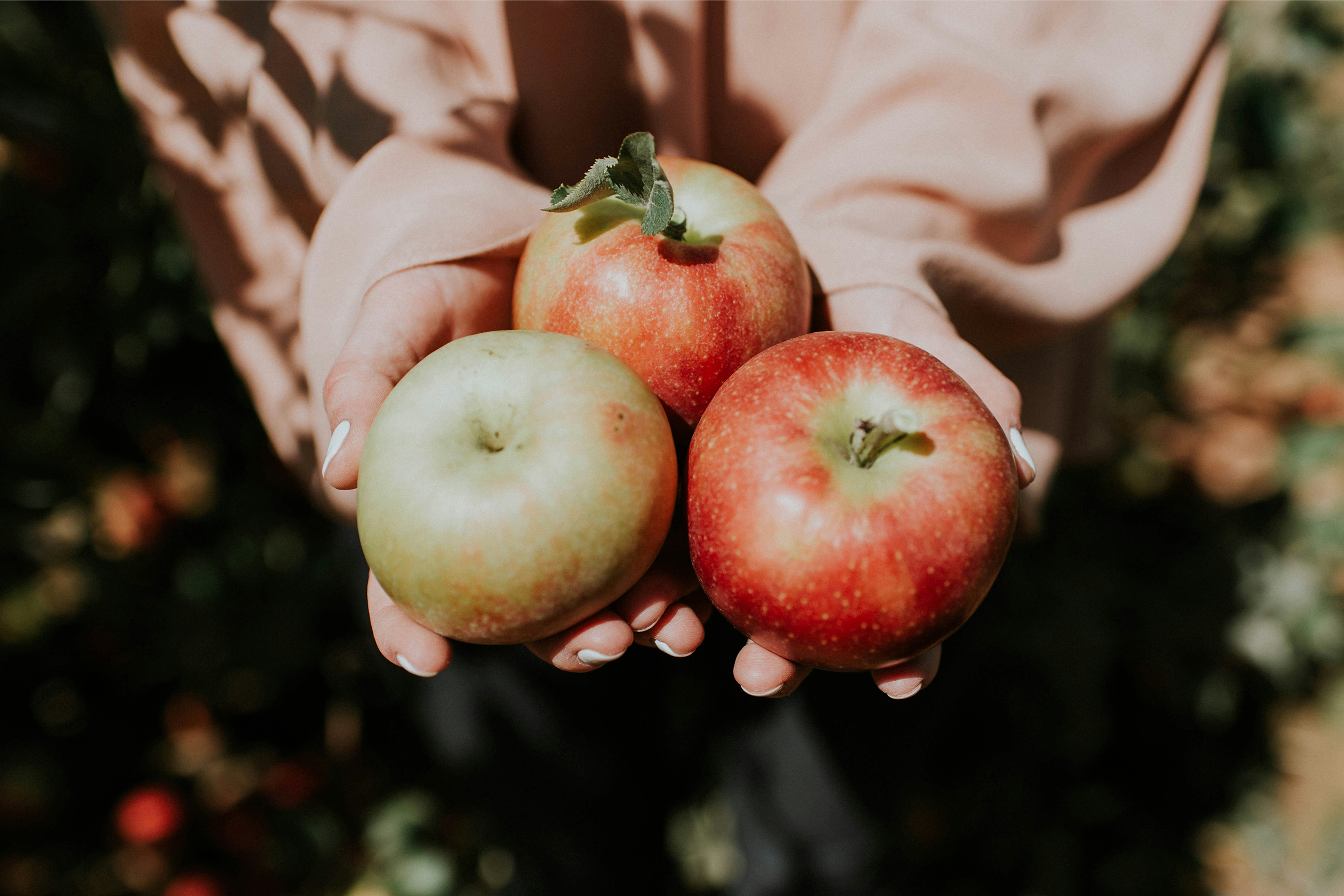An apple a day keeps the doctor away……. but is it ‘chemical free’? At Tri Nature when asked if our products are ‘chemical free’, we say NO for one simple reason. There is simply no such thing.
It would be grossly misleading to claim that any products are ‘chemical free’. Everything on earth is 100% chemical. The Granny Smith Apple we eat, the air and water in our environment – even our human body is composed entirely of chemicals.
‘Chemical’ has become a term of fear due to misleading advertising. However, it need not be – instead, we need to understand the difference between safe and harmful chemicals.
For example, apples (even the organic varieties) contain over 300 different chemicals, and below is a list of just some of the chemicals found in a Granny Smith Apple.
Ethanol, 1-Propanol, 1-Butanol, 2-Methyl-1-Propanol, Butyl Acetate, Butyl Butanoate, 2-Methylpropyl Acetate, Trans-2-Hexenal, and Benzaldehyde[1].
If someone handed you this list and asked you to eat the product with these ingredients, you would probably politely decline because it looks more like a list of toxic waste rather than the components of a delicious and healthy snack. It is not always easy to determine from a list of chemicals what is harmful and what is safe.
A rose by any other name would smell as sweet…but is it ‘natural’?
You may have heard people advise that if you cannot pronounce it then it must not be natural. This dubious advice is often given about food but is also finding its way over to personal care and cleaning products.
There are plenty of words that we struggle to pronounce like quinoa (keen·waa) that are natural products (and quite delicious) and other harmful products like bleach that we can easily say. Did you know that water can also be referred to by its chemical name, dihydrogen monoxide (H2O), which sounds like some nasty toxic gas that comes out of your car exhaust instead of a refreshing beverage. So, let us take this questionable advice and throw it away with the other words we cannot pronounce (‘Worcestershire’ we are looking at you).
Even looking at the name of an ingredient does not tell you if it’s from natural sources as many ingredients with the same name can be made or extracted from sustainable natural sources (e.g. coconut oil) or other unsustainable sources such as petroleum. For example, Sodium Lauryl Sulphate (SLS), which is often used in supermarket shampoos, is made with lauryl alcohol which can be derived from coconut, palm, or petroleum sources and the only way to know which source is used is by asking the supplier or manufacturer.
At Tri Nature we work with our trusted suppliers to ensure that our ingredients are from sustainable plant-based and naturally derived sources so that you don’t have to worry.
The dose makes the poison……. but is natural safer?
You would have heard someone say that ‘natural is safer’ but this is not always true. There are many natural materials that are extremely toxic in small amounts (e.g. ricin from castor beans, arsenic, and snake venom) and some others that can be used safely at low levels but are very toxic at higher levels (e.g. Botox). Similarly, there are many safe products that are produced from sources that are not considered natural such as petroleum.
The difference between a safe ingredient and a poison is all about the dose (i.e. how much is ingested, inhaled, or comes into contact with skin). Even water which is one of the least toxic and most natural chemicals on earth can be harmful if you consume too much. Understanding the levels at which ingredients can be used safely without causing harm is the key to making gentle naturally derived products.
While naturally derived chemicals are not inherently safer than synthetically derived chemicals, there are other benefits to using naturally derived materials including being better for the environment and being renewable and sustainable.
At Tri Nature our dedicated research and development team utilise our gentle chemistry philosophy to source premium quality naturally derived, renewable, and biodegradable ingredients with low hazard profiles to create products that not only have superior performance but have low impact on the environment and are safe to use.
Explore the Tri Nature range here.
[1] https://www.ncbi.nlm.nih.gov/pmc/articles/PMC5253989/



